Study structure 2016
Table of contents
(valid from 1.10.2016 as the start of enrollment)
Overview of the course structure
The standard period of study for the Master's degree course in European Languages is four semesters. The course has a modular structure and concludes with the Master's thesis. A total of 120 credit points (CP) are earned upon successful completion of the course. The modules of the course are divided into compulsory and compulsory elective modules.
| 1st academic year | 2nd academic year |
| Specialization module | Extension module |
| Complementary module | Module EuroS - Scientific Presentation |
| EuroS - Basic module | Master thesis |
| Module EuroS - Scientific Practice |
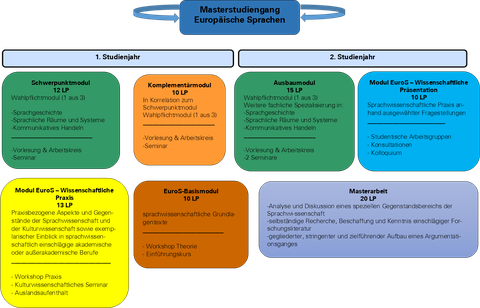
Modulübersicht, EuroS 2016
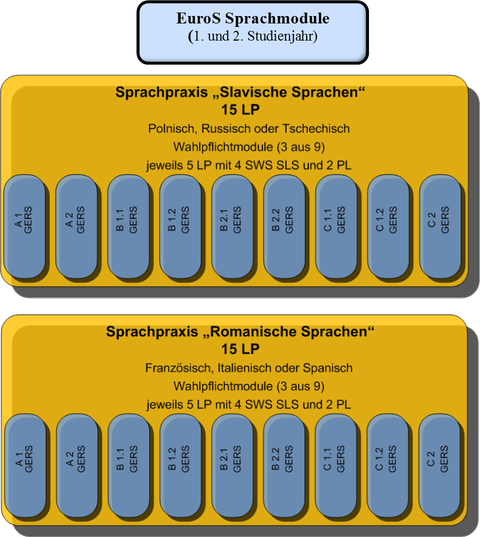
Sprachmodule
Information on the language modules can be found here.
Explanations of the modules
1st academic year
Specialization module
In this module, students select courses from one of the three thematic focus areas:
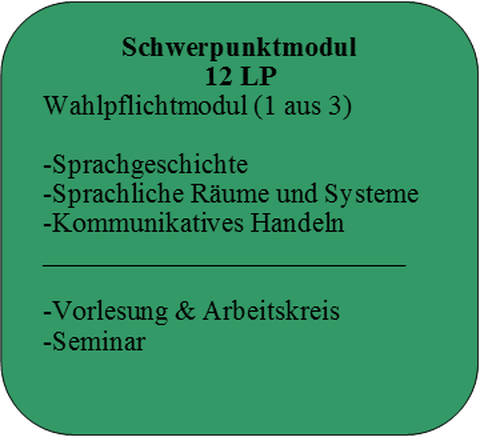
Schwerpunktmodul
- Language history: analysis of internal and external language history e.g. on the basis of epochs of an individual language and / or in comparison of related languages, on the basis of sub-areas (such as phonology or syntax), etc.
- Linguistic spaces and systems:
Analysis of the construction of linguistic spaces, analysis of individual language systems or related languages, etc. - Linguistic action: Theory and practice of communicative action, e.g. from the perspective of more general pragmalinguistics, research on corporate communication, etc.
The courses within the specializations must be chosen in such a way that at least two languages are covered.
Examinations:
- combined term paper of 180 hours
- reading-related assignment of 90 hours.
Complementary module
In this module, students choose courses that complement their knowledge and skills beyond the chosen specialization module. At least two languages must be covered.
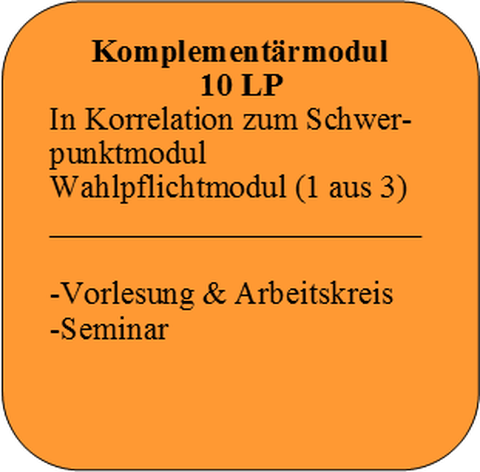
Komplementärmodul
Examinations:
- two reading-related assignments of 90 hours each
EuroS - basic module
The module comprises basic linguistic texts on the history and theory of linguistics.
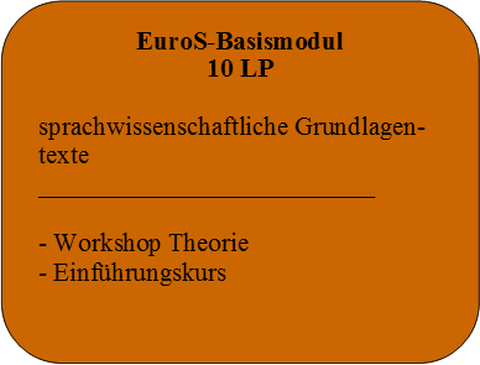
EuroS-Basismodul
Assessment requirements:
- Presentation of 10 minutes.
- Written exam lasting 90 minutes.
Module EuroS - Scientific Practice
The module covers selected practice-related aspects and subjects of linguistics and cultural studies as well as exemplary insights into academic or non-academic professions relevant to linguistics. In addition to a cultural studies seminar, a stay abroad of at least four weeks serves as a form of teaching and learning. In addition to cultural studies and methodological expertise, students' intercultural and foreign language skills are thus strengthened.
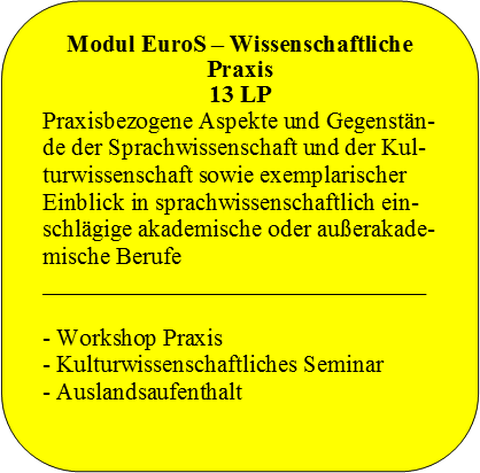
Modul EuroS - Wissenschaftliche Praxis
Examination performance:
- reading-related assignment of 90 hours
- a professionally oriented editorial task amounting to 60 hours
- ungraded report of 60 hours (guidelines for the design of the report on the stay abroad can be requested from the student advisory service)
2nd year of study
Information on the language modules can be found here.
Extension module
The courses in this module are chosen by the students from one of the three thematic focuses:
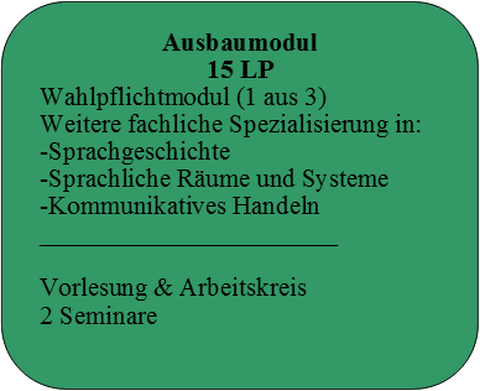
Ausbaumodul
- History of language
- Linguistic spaces & systems
- Communicative action.
At least two languages must be covered.
Examination performance:
- a combined paper of 120 hours
- an ungraded thesis paper of 30 hours
- a reading-related assignment of 90 hours
Module EuroS - Scientific Presentation
This module primarily serves as a preparatory consultation for the Master's thesis. In the first step, students discuss their Master's thesis project with each other. They then present the exposé of their planned Master's thesis to a committee and defend the concept of their thesis in front of this committee in a 45-minute colloquium.
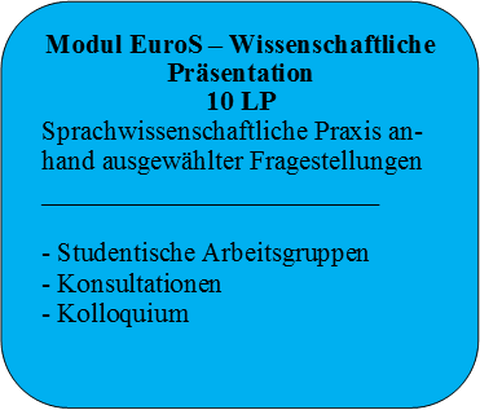
Modul EuroS - Wissenschaftliche Präsentation
Examination performance:
- an exposé of 150 hours (guidelines for the design of the exposé can be requested from the student advisory service)
- a colloquium lasting 45 hours
Master's thesis
Based on the results of the "Scientific Presentation" module, students complete their Master's thesis in the second half of the second year of study.
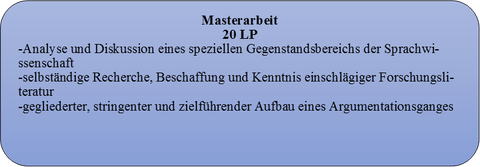
Masterarbeit
This takes 17 weeks. The first supervisor of the Master's thesis is a EuroS professor. The Master's thesis is written in German, in consultation with the supervisor or, upon request to the Examination Committee, in English or another of the languages taught in the degree program.
Under the following link you will find the Master's theses supervised so far in the degree program "European Languages".
